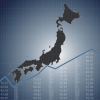Investment Insights
New Zealand Fixed Income Monthly - June 2021
New Zealand’s bond market was relatively flat in June, although most sectors were on the positive side. Looking ahead, New Zealand appears set to track the US, where interest rate hikes could now happen as early as 2022.
New Zealand Equity Monthly - June 2021
This month, we take a look at the current state and prospects of New Zealand’s five main electricity generators/retail providers. Almost all the electricity in New Zealand is generated by five companies: Genesis Energy, Contact Energy, Meridian Energy, Mercury Energy and Trustpower.
"Thank goodness the Olympics burden is over!"
This is the likely phrase one will often hear in a few weeks, especially among equity investors and Japan’s political leadership. Of course, there are currently very few people in Japan who are very enthusiastic about holding the Olympics and virtually everyone would agree that it is a burden, but only the International Olympic Committee (IOC) can cancel an Olympics.
Asian Equity Monthly - June 2021
Asian stocks edged lower in June, partly weighed down by a recent spike in COVID-19 cases in the region. Lingering worries about rising inflation and fears of a faster-than-expected tapering of the US Federal Reserve’s quantitative easing programme also dampened sentiment.
Multi-asset Monthly - July 2021
The US and China are likely reaching peak growth as stimulus and the initial burst of pent-up demand begin to wane. In China, while the credit impulse has turned negative—usually an ominous sign—demand continues to normalise, shifting from outsized demand in manufacturing back to normal patterns of consumption with authorities still fine-tuning the extension of credit to the parts of the real economy that need it.
Asian Fixed Income Monthly - June 2021
The US Treasury (UST) yield curve flattened in June, with short-dated bonds underperforming. The Federal Reserve’s (Fed) hawkish pivot caused the UST curve to flatten aggressively mid-month.
Japan Equity Monthly - June 2021
We discuss what global inflation could mean for Japan, with the country having struggled extensively with deflation; we also assess the BOJ‘s plan to boost funding for mitigating climate change and what that could mean in the longer run from a corporate governance perspective.
Navigating credit opportunities in a recovering world
The momentum gained by the global credit market in 2020 has continued into 2021 and we appear to be on track for another strong year of performance. Low government bond yields, ample liquidity and improving credit quality have supported a market that now trades with spreads at all-time lows in some pockets.
Dispelling negative notions about Japan amid its increasing importance
Japan’s stock market does not deserve many of the ages-old worries and criticisms. Indeed, while not every company or circumstance is perfect, its performance, though lower than that of the US, has steadily outperformed, in constant currency terms, its other main global market rival, Europe, since late 2012 when Shinzo Abe was elected to lead the LDP.
Out of the six scenarios presented, a solid majority of our committee agreed again on a positive scenario, in which the global economy matches the market consensus for very strong growth, while equities continue to rally.
New Zealand Equity Monthly - May 2021
The New Zealand equity market has been blessed by strong upward revisions in corporate earnings and a robust macro framework, with the country further along than its peers in a V-shaped recovery from a COVID-19-induced downturn.
New Zealand Fixed Income Monthly - May 2021
We believe that the recent rise in New Zealand’s interest rates has put the bond market in a good place, as the alternative may have been a negative interest rate regime instead. Without higher interest rates the government would have found it difficult to fund itself, as the country’s bonds may not have otherwise been attractive to offshore investors.
The Fed raises concerns on inflation
After many years of trying to stimulate inflation, central banks are now facing inflation levels that are far exceeding recent trends. In May, eurozone inflation rose to 2% and in the US core inflation reached 3.8% (almost a 30-year high).
A new era for manager due diligence
The 2007-2008 global financial crisis had a lasting impact on public and private pension funds, as the collapse of Lehman Brothers and massive fraud committed by Wall Street money manager Bernie Madoff placed greater emphasis on fiduciary obligations and manager due diligence.
Reaping big rewards in Asian small caps
Grace Yan, a Senior Portfolio Manager and a member of the Nikko AM Asian Equity Team, talks about the underlying reasons behind her recent success in winning Citywire Asia’s Best Fund Manager award and her passion about uncovering hidden gems in the Asian small-cap equity arena.
Multi-asset Monthly - June 2021
Despite very bumpy economic data—particularly on inflation—rates have compressed, implying most of the “surprises” have already been priced in. This is positive for growth assets that respond better to yield curve stability than the sudden steepening that defined the first quarter.
Asian Equity Monthly - May 2021
Supported by optimism about the region’s ongoing economic recovery, Asian stocks delivered decent gains in May, shrugging off concerns about a spike in COVID-19 cases in several Asian countries and persistent worries about inflation.
Asian Fixed Income Monthly - May 2021
US Treasury (UST) yields traded in a relatively narrow range in May. Inflation fears resurfaced, prompted by rising commodity prices and a marked increase in headline consumer and producer price indices in the US.
Japan Equity Monthly - May 2021
We explain why corporate earnings in FY21 are expected to begin reflecting recovering confidence among Japanese companies as vaccine rollouts gain momentum. We also look into the BOJ’s trial run for a digital yen and the impact such a currency could have on the economy and markets.
Are rising yields a concern for Asian REITs?
We believe that Asian REITs will continue to perform well while the economic recovery in Asia and the rest of the world remains strong and as long as the rise in bond yields do not become excessive.
























